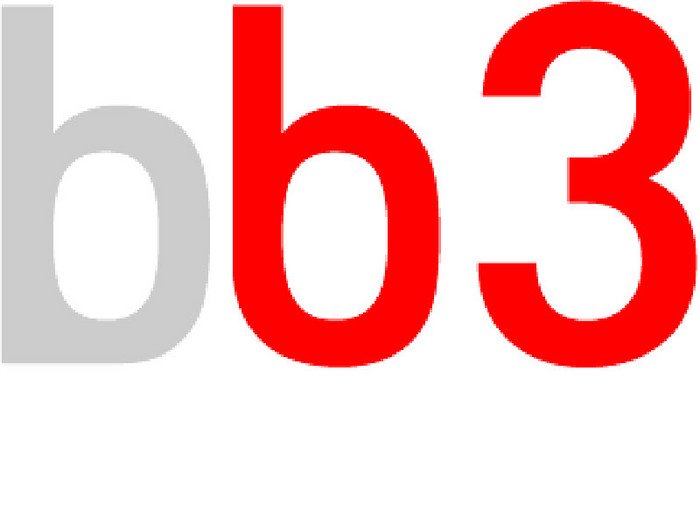3rd berlin biennial for contemporary art
14 Feb - 18 Apr 2004
3rd berlin biennial for contemporary art
February 14 - April 18, 2004
Opening: February 13, 2004, 7 pm
The 3rd berlin biennial for contemporary art is centred around three different locations in Berlin: the KW Institute for Contemporary Art and for the first time the Martin-Gropius-Bau; the 3rd berlin biennial’s film programme is shown in the Kino Arsenal.
The artists, cultural producers, film makers and authors who take part were selected by Ute Meta Bauer on the basis of the structural changes the city has experienced since the end of the East-West conflict. Berlin served as reference point for the presentation of a broad international spectrum of visual, urban, cinematic, performativ and sonic stagings.
The five main themes – divided spatially within the exhibit and thus called “hubs” – on MIGRATION (Hito Steyerl), URBAN CONDITIONS (Jesko Fezer and Axel John Wieder), SONIC SCAPES (The Sonic Team), FASHIONS AND SCENES (Regina Möller) and OTHER CINEMAS (Mark Nash), that were created to a large extent on site, are directly related to the exhibition’s location, Berlin.
For the first time, an extensive film programme is shown three times a week at the Kino Arsenal at Potsdamer Platz. In addition to podium discussions in the KW - Institute for Contemporary Art there are numerous cooperative events with other cultural institutes in Berlin, like the Heinrich Böll Stiftung, the Künstlerhaus Bethanien, MaerzMusik, Berliner Festspiele and the Schaubühne am Lehniner Platz. The official partnership with the Freunde der Deutschen Kinemathek and the temporary radio project reboot.fm that will transmit a weekly radio programme on the 3rd berlin biennial are a further first.
The finale of the 3rd berlin biennial will be a three-day-long event, Performance Jam, with sound performances, concerts, readings and fashion shows on the last exhibition weekend from the 16th to 18th April, 2004.
An exhibition catalogue of the 3rd berlin biennial with short texts on the various exhibits, a catalogue raisonné and short biographies has been published, in addition to a full-colour catalogue “complex berlin” with over 300 photographs of the artists’ work and ten new essays on Berlin.
The 3rd berlin biennial for contemporary art is largely funded by the Hauptstadtkulturfonds and the Allianz Kulturstiftung.
The hub MIGRATION is supported by the Bundeszentrale für politische Bildung.
The Institut für Auslandsbeziehungen, Stuttgart/Rave-Stiftung supports
the 3rd berlin biennial with two Rave-scholarships for foreign curators (Ingrid Blanco Díaz and Esra Sarigedik).
The berlin biennial for contemporary art was founded and supported with substantial share of the Firmengruppe Mayntz, Berlin.
February 14 - April 18, 2004
Opening: February 13, 2004, 7 pm
The 3rd berlin biennial for contemporary art is centred around three different locations in Berlin: the KW Institute for Contemporary Art and for the first time the Martin-Gropius-Bau; the 3rd berlin biennial’s film programme is shown in the Kino Arsenal.
The artists, cultural producers, film makers and authors who take part were selected by Ute Meta Bauer on the basis of the structural changes the city has experienced since the end of the East-West conflict. Berlin served as reference point for the presentation of a broad international spectrum of visual, urban, cinematic, performativ and sonic stagings.
The five main themes – divided spatially within the exhibit and thus called “hubs” – on MIGRATION (Hito Steyerl), URBAN CONDITIONS (Jesko Fezer and Axel John Wieder), SONIC SCAPES (The Sonic Team), FASHIONS AND SCENES (Regina Möller) and OTHER CINEMAS (Mark Nash), that were created to a large extent on site, are directly related to the exhibition’s location, Berlin.
For the first time, an extensive film programme is shown three times a week at the Kino Arsenal at Potsdamer Platz. In addition to podium discussions in the KW - Institute for Contemporary Art there are numerous cooperative events with other cultural institutes in Berlin, like the Heinrich Böll Stiftung, the Künstlerhaus Bethanien, MaerzMusik, Berliner Festspiele and the Schaubühne am Lehniner Platz. The official partnership with the Freunde der Deutschen Kinemathek and the temporary radio project reboot.fm that will transmit a weekly radio programme on the 3rd berlin biennial are a further first.
The finale of the 3rd berlin biennial will be a three-day-long event, Performance Jam, with sound performances, concerts, readings and fashion shows on the last exhibition weekend from the 16th to 18th April, 2004.
An exhibition catalogue of the 3rd berlin biennial with short texts on the various exhibits, a catalogue raisonné and short biographies has been published, in addition to a full-colour catalogue “complex berlin” with over 300 photographs of the artists’ work and ten new essays on Berlin.
The 3rd berlin biennial for contemporary art is largely funded by the Hauptstadtkulturfonds and the Allianz Kulturstiftung.
The hub MIGRATION is supported by the Bundeszentrale für politische Bildung.
The Institut für Auslandsbeziehungen, Stuttgart/Rave-Stiftung supports
the 3rd berlin biennial with two Rave-scholarships for foreign curators (Ingrid Blanco Díaz and Esra Sarigedik).
The berlin biennial for contemporary art was founded and supported with substantial share of the Firmengruppe Mayntz, Berlin.

